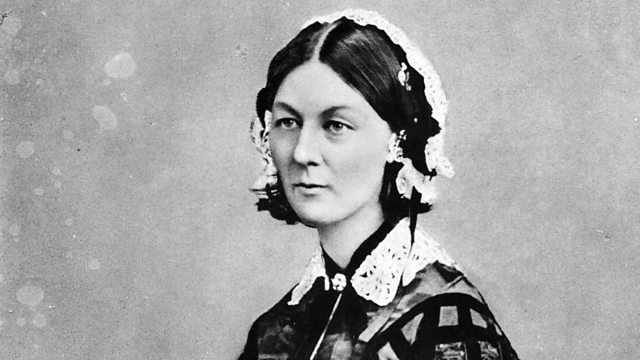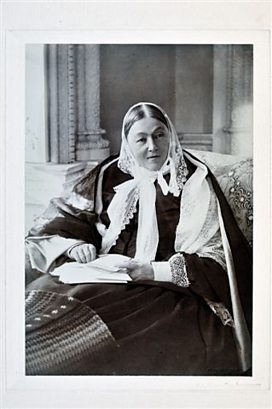Florence Nightingale
Historian Dr Lucy Worsley chooses 'The Lady with the Lamp', Florence Nightingale. From 2013.
Dr Lucy Worsley chooses a figure as familiar as she is unknown, the great champion of Victorian nursing, Florence Nightingale. Known as 'the Lady with the Lamp' for her work in the Crimea.
Born in 1820 into an upper middle class family, Florence experienced early life as a bird in a gilded cage and suffered frequent 'nervous collapse'. Prodigiously intelligent, she was also deeply religious, and at 16 declared she had heard the voice of God, calling her to nursing. By her thirties, and despite opposition from her family, Florence had succeeded in training as a nurse. She was working in a Harley Street establishment for the care of gentlewomen when Britain and France joined Turkish forces against the Russians in the Crimea. As reports came in of the men's suffering, she became convinced of her ability to help.
Commissioned by the War Office, Florence set sail for the Crimea in 1854, and her work there quickly became well known. Walking the corridors with her lamp, she was adored by the men for her determination to spare them the diseases like cholera and typhus that were decimating their numbers. But she was as steely as she was compassionate, and ran her troop of nurses with a military discipline. In Britain her reputation grew.
By the time of her return two years later, Florence was a reluctant celebrity, frail and ill. While her mother and sister basked in her glory, Florence retreated from the limelight, and for some years was bed-bound. It's now believed she had brucellosis, an illness contracted through infected milk, which leads to depression and severe pain. Yet this did not stop her engagement with medicine, and even from her bed she was instrumental in changing the way that healthcare was implemented both in the Army, and in society at large. Statistics was key to this, and a passion for Florence, who saw in the gathering of data, the evidence of God's patterns at work. She also famously established a school for nursing, and professionalised nursing work.
Dr Lucy Worsley, television historian, writer and Chief Curator at Historic Royal Palaces, the independent charity that looks after buildings including Hampton Court and the Tower of London, joins Matthew Parris to discuss the complex background of 'the Lady with the Lamp'. And biographer Mark Bostridge explains why Nightingale has a right to be regarded as a great genius of the Victorian age.
Producer: Lizz Pearson
First broadcast on 大象传媒 Radio 4 in 2013.
Last on
More episodes
Previous
![]()
For more information visit the homepage of the Florence Nightingale Museum.
Credits
| Role | Contributor |
|---|---|
| Presenter | Matthew Parris |
| Interviewed Guest | Lucy Worsley |
| Interviewed Guest | Mark Bostridge |
| Producer | Lizz Pearson |
Broadcasts
- Tue 28 May 2013 16:30大象传媒 Radio 4 FM
- Fri 31 May 2013 23:00大象传媒 Radio 4
- Thu 22 Aug 2019 18:30大象传媒 Radio 4 Extra
- Fri 23 Aug 2019 00:30大象传媒 Radio 4 Extra
Featured in...
![]()
From the Archive
Listen to an ever growing selection of programmes from the Radio 4 archives.
Download this programme
Subscribe to this programme or download individual episodes.
Podcast
-
![]()
Great Lives
Biographical series in which guests choose someone who has inspired their lives.





